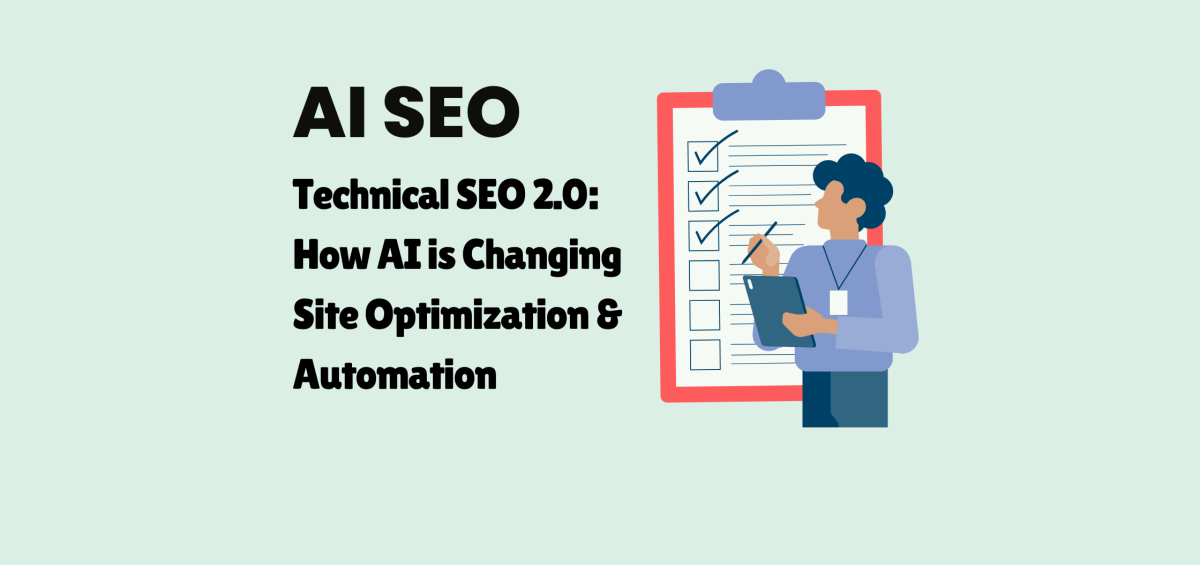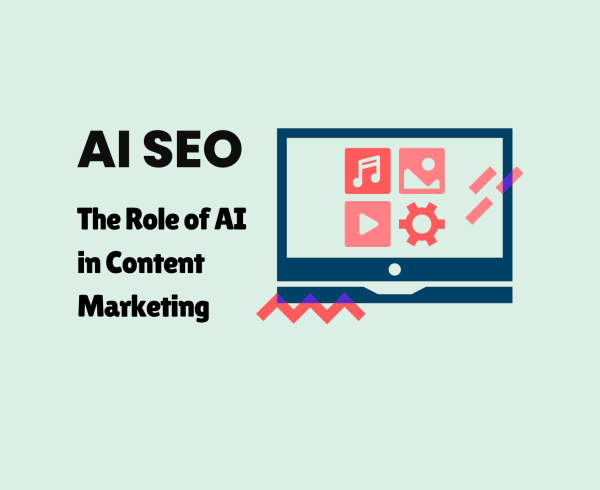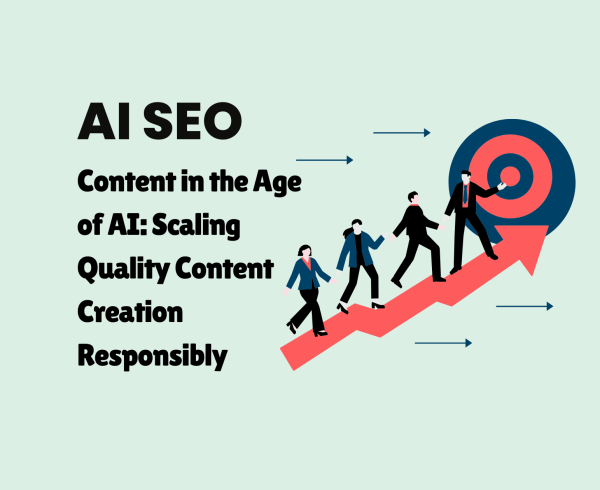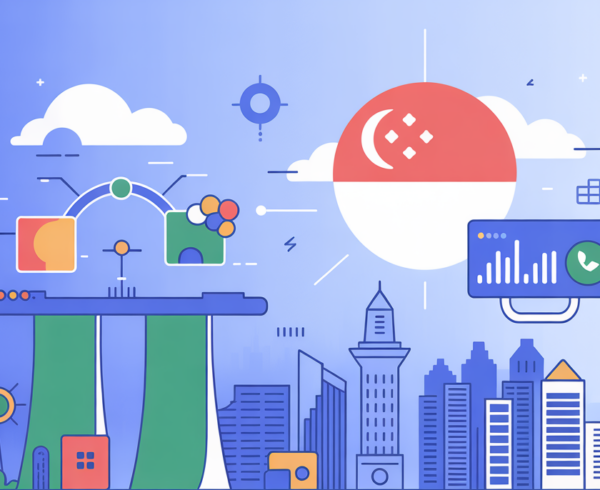Introduction
When you think about SEO, you likely picture keyword optimization, content creation, and backlinks. But there’s a whole other dimension that is essential to SEO success—technical SEO. In the age of AI, technical SEO is evolving at an accelerated pace. Search engines like Google and Bing are increasingly relying on artificial intelligence to crawl, index, and rank websites. This new era of AI-driven search is reshaping technical SEO, offering opportunities for automation, smarter optimizations, and better user experiences.
In this article, we’ll dive deep into how AI is revolutionizing technical SEO, the latest tools that can automate SEO tasks, and practical steps you can take to stay ahead in optimizing your website for the next generation of search engines.
The Evolving Role of AI in Technical SEO
Traditionally, technical SEO focused on crawlability, indexing, mobile optimization, and site architecture. Now, AI has supercharged this process.
Today’s SEO agency must go beyond basics—leveraging machine learning to align with how search engines like Google understand content context, intent, and UX.
AI for Site Crawling and Indexing
AI’s impact on SEO starts from the moment a search engine bot crawls your site. Traditional crawling was based on static algorithms that simply followed links and indexed pages. Today, AI-enhanced crawling systems, such as those used by Google, are much more sophisticated. Googlebot and Bingbot have evolved with AI algorithms that enable them to understand the context of your content, rather than just indexing keywords.
- Contextual Understanding: Instead of simply indexing pages, AI-powered bots can now understand the meaning behind your content. For example, if you have a blog post about “plant care,” Google’s AI (such as BERT or MUM) can interpret the nuances of the content to serve the right search results, even for long-tail, conversational queries.
- Deep Crawl Efficiency: AI can also improve crawling efficiency by detecting issues like duplicate content, broken links, or missing meta descriptions more quickly and accurately. Instead of waiting for a manual audit, AI helps you catch potential problems before they escalate.
Actionable Tip
Ensure that your site is technically optimized for AI-powered crawlers by following best practices for structured data, XML sitemaps, and robots.txt. These tools help AI bots navigate your site better, ensuring that search engines correctly index your most important pages.
The Rise of Automation in SEO Tasks
AI is changing not just how search engines crawl and rank your website, but how marketers and SEO professionals manage the technical aspects of optimization. Automation tools powered by AI are enabling SEO professionals to streamline repetitive tasks, reduce human error, and focus on higher-level strategy. Let’s explore how automation tools can help you scale your SEO efforts.
AI in Site Audits
Traditionally, conducting a comprehensive SEO audit was a time-consuming process that required manually checking site speed, broken links, crawl errors, duplicate content, and more. Today, AI-driven site audit tools like SEMrush, Screaming Frog, and Ahrefs use AI to automate these processes.
These AI tools can quickly crawl your site, flag issues, and even provide actionable insights and recommendations for fixing them. Moreover, machine learning algorithms in these tools get smarter over time, identifying patterns in your website’s performance and adapting recommendations accordingly.
- AI-driven Alerts: Set up automated alerts to notify your team whenever there’s a new issue with your website, such as a drop in page speed or a broken link.
- Intelligent Recommendations: AI-powered audits don’t just find problems—they suggest solutions. For example, AI tools might recommend that you optimize an image file, restructure your heading tags, or consolidate duplicate content.
Actionable Tip
Take advantage of AI-powered SEO audit tools to regularly monitor your site’s health and make updates as needed. Use machine learning-driven insights to continuously improve your SEO and ensure that your site is operating at peak efficiency.
AI for Automated Content Creation & Optimization
Another area where AI is transforming technical SEO is in content creation and optimization. While AI-generated content is a widely discussed topic, AI is also making it easier for marketers to optimize content for better performance in search engines.
- On-page SEO Optimization: Tools like SurferSEO and Hashmeta AI SEO use AI to analyze the structure of top-ranking pages for a given keyword and provide you with an AI-backed optimization checklist. These tools can analyze keyword density, suggest related terms, and help structure your content for better engagement.
- Content Gap Analysis: AI tools can also analyze competitors’ content and identify gaps in your own. This allows you to create content that fills these gaps, improving your chances of ranking higher on search engine results pages (SERPs).
Actionable Tip
Leverage AI-powered content optimization tools to review your current content for missed opportunities and under-optimized areas. Tools like Grammarly or Hemingway Editor can also help ensure your content is polished and easy to read for both humans and AI bots.
AI-Driven Technical SEO Tools for Site Speed and UX Optimization
Google’s Core Web Vitals introduced a new focus on user experience (UX), particularly on page speed, interactivity, and visual stability. AI plays a crucial role in helping improve these metrics by providing smart insights and recommendations.
1. AI for Page Speed Optimization
Page speed is a crucial ranking factor for SEO and UX. AI-powered tools like Google PageSpeed Insights and Lighthouse leverage machine learning to identify areas where a website can improve speed. These tools provide specific suggestions for improving loading times, such as image compression, resource minification, and JavaScript optimization.
- Predictive Analysis: AI can predict how changes to your site’s design or functionality will affect your page speed, allowing you to make smarter decisions before implementing changes.
2. AI for UX Improvements
User experience is another area where AI is making significant strides in technical SEO. Tools like Hotjar and Crazy Egg use AI to analyze user behavior, such as where users are clicking, how far they’re scrolling, and where they’re abandoning the page. This data can help you optimize your website for better engagement.
- Heatmaps and Session Recordings: AI-driven tools analyze user behavior through heatmaps and session recordings, identifying friction points and opportunities for better interaction.
- A/B Testing: AI makes A/B testing easier and more accurate by automating the comparison of different versions of your web pages and providing insights into which version performs best.
Actionable Tip
Regularly monitor and optimize your site’s Core Web Vitals using AI-driven tools. Ensure that your site is fast, interactive, and stable, as these factors will directly influence both search rankings and user satisfaction.
How AI Improves Structured Data and Schema Markup
Structured data and schema markup are more important than ever in AI-driven SEO. By providing search engines with more detailed, machine-readable information, you help them understand your content at a deeper level. This helps with both ranking and rich results like featured snippets, knowledge panels, and product carousels.
- Automatic Schema Markup Generation: AI-powered tools like Schema.org and DataHighway automate the process of adding structured data to your website, making it easier to ensure that your pages are properly marked up without manual intervention.
- Enhanced Rich Snippets: Proper schema markup helps your site stand out in search results with rich snippets, which are becoming increasingly important as search engines adopt more AI-driven features.
Actionable Tip
Make sure your website is using structured data by adding the appropriate schema markup for products, articles, reviews, and other key elements. Use AI tools to streamline this process and enhance your site’s visibility in search.
Conclusion: Embracing AI for Future-Proof Technical SEO
The impact of AI on technical SEO is profound and cannot be ignored. From crawling and indexing to content optimization and site audits, AI is making SEO tasks faster, smarter, and more efficient. The ability to automate routine tasks, gain intelligent insights, and improve user experience puts businesses in a better position to thrive in an AI-driven search world.
To stay ahead of the curve, senior marketers and business owners must embrace AI not just as a tool, but as a strategy. Leverage AI-powered tools for technical SEO, content optimization, and user experience enhancements to create a more efficient, scalable, and future-proof SEO strategy. The future of SEO is automated, intelligent, and optimized for both AI-driven search engines and user experience—start implementing these AI-driven techniques now to secure your position at the top.
In the next article, we’ll dive into AI-powered keyword research and how to use predictive analytics to uncover high-potential search opportunities. Stay tuned!






